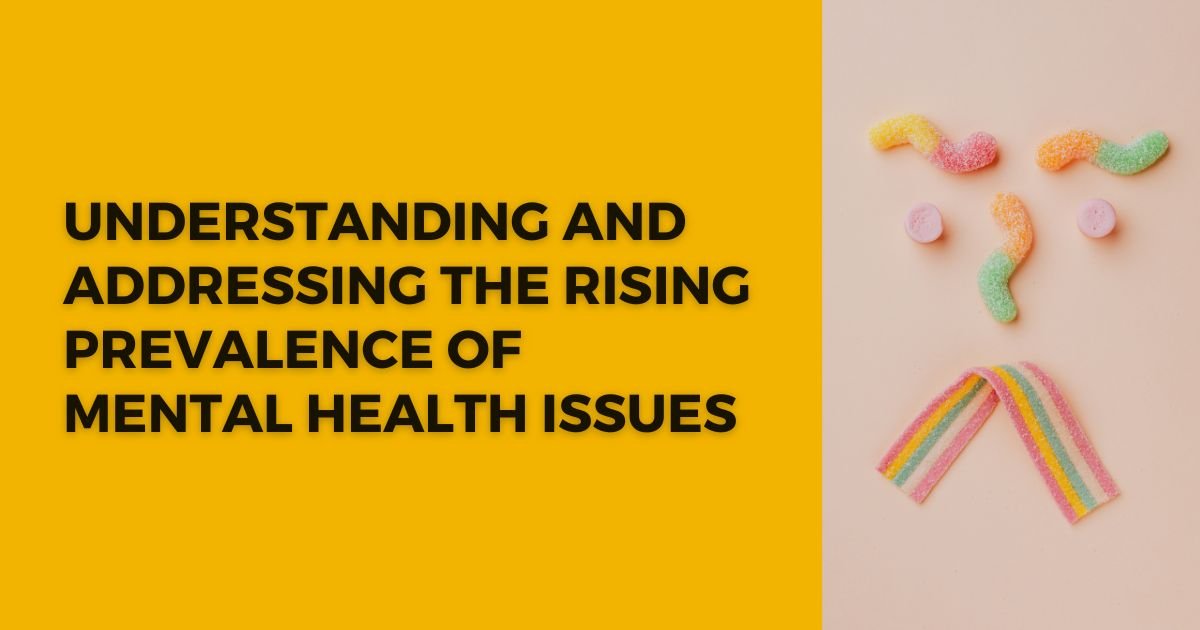The COVID-19 pandemic has brought unprecedented challenges to the mental health and well-being of individuals around the world. The uncertainty, stress, and disruptions caused by the pandemic have taken a toll on mental health, making it crucial to prioritize self-care to manage and maintain mental well-being.
In this context, self-care has become more important than ever. It involves taking intentional steps to care for one’s physical, emotional, and mental health.
Table of Contents
Is COVID causing Mental Health Issues?
Yes, the COVID-19 pandemic has had a significant impact on mental health worldwide. The pandemic has caused a great deal of stress and anxiety due to factors such as fear of infection, social isolation, financial stress, and uncertainty about the future.
A study conducted by the Kaiser Family Foundation found that the pandemic has had a negative impact on the mental health of many adults in the United States, with 53% of adults reporting that their mental health has been negatively affected due to worry and stress related to COVID-19. Similarly, a survey conducted by the United Nations found that the pandemic has had a negative impact on the mental health of people around the world, particularly among vulnerable groups such as frontline workers, children, and people with pre-existing mental health conditions.
The pandemic has also disrupted mental health care services, making it harder for people to access the support they need. Additionally, social distancing measures and lockdowns have resulted in increased social isolation, which can contribute to feelings of loneliness, depression, and anxiety.
It’s important to prioritize mental health during this challenging time. Strategies such as maintaining a routine, staying connected with loved ones, practicing self-care, and seeking professional help if needed can all help to support mental well-being.
Why is COVID causing Mental Health Issues?
The COVID-19 pandemic has brought a number of stressors and challenges that can contribute to mental health issues. Here are a few reasons why COVID-19 may be causing mental health issues:
- Isolation and social distancing: The need to physically distance from others to prevent the spread of COVID-19 can lead to feelings of loneliness and isolation, which can contribute to anxiety and depression.
- Fear and uncertainty: The pandemic has created a great deal of fear and uncertainty about the future, including concerns about health, employment, and financial stability. This can contribute to anxiety, depression, and other mental health issues.
- Loss and grief: The pandemic has caused a great deal of loss, including the loss of loved ones, jobs, and social connections. This can contribute to feelings of grief and depression.
- Disruption of daily routines: The pandemic has disrupted many people’s daily routines, including work, school, and social activities. This can create a sense of instability and contribute to feelings of stress and anxiety.
- Health concerns: The fear of contracting COVID-19 or of loved ones becoming ill can contribute to anxiety and other mental health issues.
It’s important to note that not everyone will experience mental health issues as a result of COVID-19, and some may experience resilience or positive growth as a result of the pandemic. However, it’s important to be aware of the potential mental health impacts of the pandemic and to seek support if needed.
Is Mental Health Issues an epidemic?
There is a growing awareness of the prevalence of mental health issues, and some people refer to it as an epidemic. The World Health Organization (WHO) estimates that approximately 1 in 4 people worldwide will experience mental health issues at some point in their lives. Mental health conditions are the leading cause of disability worldwide, and their prevalence is increasing.
Factors such as increased stress levels, societal pressures, exposure to traumatic events, and decreased social support may all contribute to the rise in mental health issues. Additionally, changing attitudes towards mental health may have contributed to increased recognition and diagnosis of mental health disorders.
The COVID-19 pandemic has also highlighted the importance of mental health, with many people experiencing increased stress, anxiety, and other mental health issues related to the pandemic.
It’s important to recognize that mental health issues are legitimate medical conditions that require proper diagnosis and treatment. While some people refer to it as an epidemic, it’s important to focus on increasing awareness, reducing stigma, and improving access to mental health care services. With the right support and treatment, many people with mental health issues can recover and lead fulfilling lives.
Mental Health Issues when working from home?
Working from home can present unique challenges to mental health, as it can blur the boundaries between work and personal life and may contribute to feelings of isolation and loneliness. Additionally, the lack of face-to-face interaction with colleagues and supervisors may make it more difficult to feel connected and supported.
Some common mental health issues that may arise when working from home include:
- Isolation and loneliness: Without regular social interaction, people may feel disconnected from others and experience feelings of loneliness.
- Burnout: Working from home can lead to overwork and burnout, as people may feel the need to be constantly available and productive.
- Depression and anxiety: The lack of structure and routine can contribute to feelings of anxiety and depression, as well as make it more difficult to manage these conditions.
- Substance abuse: Working from home can also increase the risk of substance abuse, as people may turn to drugs or alcohol to cope with stress or feelings of isolation.
To help mitigate these issues, it’s important for people working from home to establish healthy habits and routines, such as setting clear work hours and taking breaks throughout the day. Additionally, maintaining regular social interaction through video calls, messaging, or other forms of communication can help people feel connected and supported.
Employers can also play a role in supporting the mental health of their employees who work from home. This can include providing resources and support for mental health, such as access to counseling or mental health days, as well as encouraging open communication and regular check-ins with employees.
How long do Mental Health Issues lasts?
The duration of mental health issues can vary depending on the specific condition and the individual’s circumstances. Some mental health issues, such as a brief episode of depression, may last for a few weeks or months, while others, such as chronic anxiety or schizophrenia, may be ongoing.
The duration of mental health issues can also be affected by a range of factors, including the individual’s response to treatment, the severity of the condition, and any underlying medical or psychological factors that may be contributing to the issue.
It’s important to note that with proper treatment, many people with mental health issues can recover and lead fulfilling lives. Treatment for mental health issues may include therapy, medication, lifestyle changes, or a combination of these approaches.
It’s also important to note that mental health conditions are often chronic, meaning that they may require ongoing management and support. With the right treatment and support, however, many people with mental health issues are able to manage their symptoms and lead happy and productive lives.
If you’re looking to explore more about mental health and well-being, don’t hesitate to click here. You’ll discover a plethora of insightful articles that can help you on your journey towards better mental health. Take care of yourself and keep reading!














This article perfectly addresses a common challenge faced by many to the mental health and well-being of individuals around the world. The practical advice and real-life examples shared here make it incredibly valuable. I’m bookmarking this for future reference!